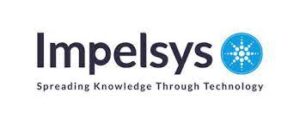Why Measuring eLearning Effectiveness Is Crucial
In today’s fast-paced digital landscape, understanding the impact of your eLearning initiatives is essential. By employing the right Key Performance Indicators (KPIs) and analytical tools, organizations can assess the effectiveness of their custom eLearning efforts and identify areas for enhancement. This article delves into the key metrics that can help you gauge the success of your eLearning programs.
Before exploring individual metrics, it’s vital to grasp the underlying reasons for measurement. Assessing the effectiveness of your Learning and Development (L&D) solutions aids in:
- Aligning training outcomes with overarching business objectives.
- Identifying knowledge or engagement gaps.
- Enhancing course design and the overall learner experience.
- Demonstrating return on investment (ROI) to stakeholders.
- Improving the design of future Learning Management System (LMS) courses.
Neglecting to track relevant data can lead organizations to squander resources on initiatives that fall short of expected outcomes.
Key Metrics to Monitor for eLearning Success
1. Learner Engagement Levels
Engagement is a strong indicator of an effective eLearning program. You can measure this through:
- Course Completion Rates:
What percentage of learners complete the course? - Drop-off Analytics:
At which points do learners typically exit? - Module Engagement:
How much time do learners dedicate to each module? - Returning Interest:
Do learners revisit materials for review?
Poor engagement signals a need for increased interactivity, visual appeal, or personalization in your eLearning design.
2. Knowledge Retention and Assessment Results
To ascertain whether training translates into long-term knowledge, assessments—both formative and summative—are pivotal. Track:
- Scores from pre- and post-assessments.
- Quiz results categorized by topic/module.
- Retention rates via follow-up evaluations.
These insights can inform enhancements to your eLearning offerings and spotlight areas that require reinforcement.
3. Feedback and Learner Satisfaction
Surveys and feedback forms provide valuable qualitative data often missed in quantitative assessments. Learners can offer insights on:
- Course organization and progression.
- Relevance and clarity of the content.
- Usability and accessibility issues.
- Aesthetic appeal and multimedia components.
Incorporating this feedback supports a learner-centered approach and continuous improvements in your custom eLearning solutions.
4. Real-World Application and Performance Change
One of the most significant, yet frequently overlooked metrics is how effectively training is applied in real-life situations. This can be assessed by:
- Monitoring shifts in key job performance indicators.
- Obtaining evaluations from supervisors or via 360-degree feedback.
- Tracking specific behaviors targeted during training (e.g., compliance, sales improvements).
This data can often be correlated through integrations with learning management systems and business platforms like CRM or HR systems.
5. Return on Investment (ROI)
Understanding the ROI of your custom eLearning programs is essential for justifying training expenses and ensuring future funding. ROI can be evaluated by comparing:
- Development and platform usage costs.
- Time savings (e.g., reduced travel or classroom time).
- Improvements in employee performance and business metrics.
For example, if your sales team experiences a 15% increase in sales post-training, that represents a measurable ROI for your eLearning solutions.
6. Learner Progression and Certification Achievements
Tracking learner advancement through courses or certification programs is critical, especially in compliance-heavy sectors. Metrics to monitor include:
- Acquisition of badges or certificates.
- Time required to reach mastery.
- Progress through designated learning tiers.
These analytics are vital for effective LMS course development and structuring learner pathways according to skill sets or compliance mandates.
7. Platform and Content Performance Metrics
Technical metrics from LMS or content tools offer additional insights, such as:
- Device and browser preferences among learners.
- Content loading times and error occurrences.
- Accessibility compliance (e.g., screen reader compatibility).
- Interaction heatmaps for videos or animations.
Understanding student engagement with technology will inform future revisions to your eLearning content and design, as well as decisions regarding mobile-friendly adaptations.
8. Broader Organizational Impact
Finally, evaluate the overarching effects of your training programs on business performance. Consider metrics such as:
- Accelerated onboarding processes for newcomers.
- Enhanced customer satisfaction ratings.
- Decrease in compliance-related infractions.
- Higher rates of internal promotions.
These indicators illustrate how effective Learning and Development strategies directly contribute to business objectives, underscoring the necessity for ongoing investment in custom eLearning solutions.
Tools for Measuring Success
To effectively track and analyze these metrics, consider leveraging tools such as:
- LMS platforms equipped with built-in analytics.
- SCORM-compliant tracking for detailed insights.
- xAPI (Experience API) to gather data across various platforms.
- HRIS or performance management systems for correlating training results with outcomes.
Integrating data from these tools creates a comprehensive view of how well your eLearning solutions are performing.
Concluding Thoughts
Designing a successful eLearning program extends beyond creating compelling content; it requires continuous measurement, evaluation, and refinement. By concentrating on the appropriate KPIs and utilizing modern analytics, organizations can amplify the effectiveness of their eLearning development efforts. Whether embarking on a new eLearning initiative, considering moving to eBook formats, or enhancing existing LMS systems, understanding and tracking the right metrics will guarantee the development of impactful training solutions.

Impelsys
Impelsys is a leading provider of learner-centric digital courseware solutions and comprehensive end-to-end learning management platforms. With over two decades of experience, we specialize in developing interactive, personalized, and engaging custom eLearning courses.



